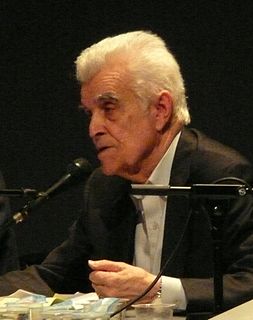A Quote by Henry Chang
We need to transcend our thoughts and desires to truly understand philosophy and the universe as a whole. However, in our everyday life, we deal with the micro universe and with our own affairs. Therefore we need to use our brain. To practice Tao is not to rid yourself of all thoughts. There are actually more occasions when you would use your true intention instead of non-desire.
Related Quotes
The human mind has a desire to know its place in the universe and the role we play in the tapestry of life. This is actually hardwired into our brains, the desire the know our relationship to the universe. This was good for our evolution, since it enabled us to see our relationship to others and to nature which was good for our survival. And it is also what drives our curiosity to understand the universe.
We're all assigned a piece of the garden, a corner of the universe that is ours to transform. Our corner of the universe is our own life - our relationships, our homes, our work, our current circumstances -. exactly as they are. Every situation we find ourselves in is an opportunity, perfectly planned by the Holy Spirit, to teach love instead of fear.
If we understood the power of our thoughts, we would guard them more closely. If we understood the awesome power of our words, we would prefer silence to almost anything negative. In our thoughts and words we create our own weaknesses and our own strengths. Our limitations and joys begin in our hearts. We can always replace negative with positive.
Even though its common knowledge these days, it never ceases to amaze me that all the richness of our mental life - all our feelings, our emotions, our thoughts, our ambitions, our love life, our religious sentiments and even what each of us regards us his own intimate private self - is simply the activity of these little specks of jelly in your head, in your brain. There is nothing else.
We are completely unaware of our true nature because we identify ourselves with our body, our emotions and our thoughts, thus losing sight of our unchanging centre, which is pure consciousness. When we return to our true nature, our thoughts and perceptions no longer appear as modifications of a single substance, they come into being and subside like waves of the ocean.
When we are angry we are blind to reality. Anger may bring us a temporary burst of energy, but that energy is blind and it blocks the part of our brain that distinguishes right from wrong. To deal with our problems, we need to be practical and realistic. If we are to be realistic, we need to use our human intelligence properly, which means we need a calm mind.

































